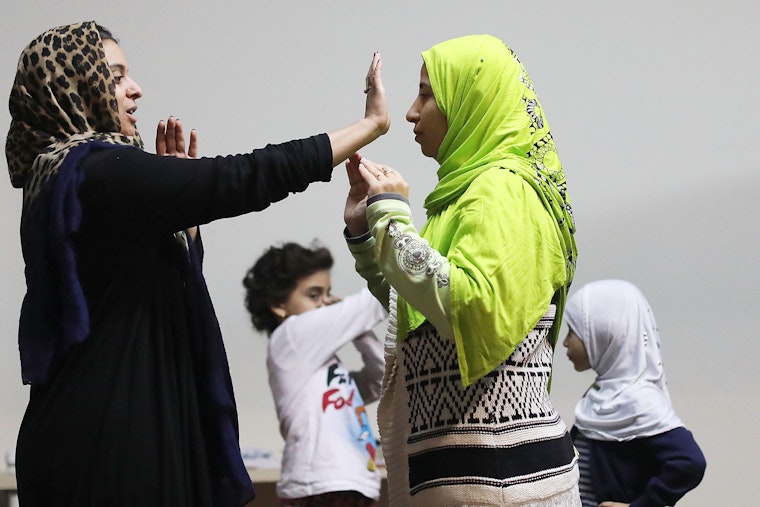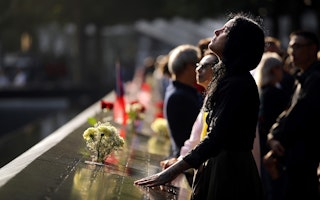Muslim American Women Are Finding Their Voice and Confronting Islamophobia
By Katarina Rodriguez

The bombing of Dar Al-Farooq Islamic Center in Bloomington, Minnesota, last week was a reminder that hate and intolerance towards Muslims is all too acceptable in America today. In July, the Council on American-Islamic Relations reported that in the first half of 2017, there was a 91 percent spike in anti-Muslim bias incidents compared to the same period last year.
These hate crimes send a message to American Muslims—they tell us that our community is always under suspicion, that our identity as Americans is always in question. But they do something else, too—they call on us to come together, to peacefully protest, to be unapologetically loud, and to keep working until all oppressed communities are free.
That’s why I work with the International Muslim Women’s Initiative for Self Empowerment (WISE), a self-defense and leadership program that prepares young Muslim women for the challenges they face in an environment of rising Islamophobia and intolerance.
After experiencing a hate crime, Rana Abdelhamid founded WISE in 2010, believing that self-defense training would help her and other young Muslim women targeted by hate reclaim their confidence. Now WISE has branches in New York, Texas, New Jersey, Washington, D.C., and abroad. Alongside self-defense classes, the initiative offers leadership and entrepreneurship training, too.
Like many women before me, I first came to WISE to learn self-defense. As a Latina Muslim convert, I had multiple reasons to want to feel safer and more in control. I was still in the process of discovering my faith; I was learning the norms of mosques and Muslim-centered spaces; and I had to unlearn the harmful stereotypes that my Muslim sisters faced in order to learn the truth about the relationship between my faith and my gender identity.
What made me return, though, was the opportunity to be part of a sisterhood of incredibly powerful and dedicated women. Sitting in the circle at my first self-defense class, I told my conversion story. For the first time, I felt able to be vulnerable with my Muslim sisters in a mosque, and I was empowered by their support and love.
Mosques lie at the heart of Muslim community life. That’s why attacks like the one in Bloomington are so upsetting. Amid this surge of hatred—an average of nine mosques per month have been targeted with threats, vandalism, or arson—our work has become even more important.
I saw that work in action this summer, when WISE collaborated with Pearls of Hope to bring a summer training program called Mentee Muslimah to Brooklyn’s Thayba Islamic Center. Our workshops did more than just show young women how to defend themselves against physical assaults, however. We also told them about resources they could use if they ever experienced bigotry, or were the victims of domestic violence. And we focused on ways for them to build up their inner strength and self-worth in the midst of a culture that so often greets them with ignorance and discrimination.
Above all, we at WISE work to help young Muslim women raise their voices and claim their space. WISE practices vocal techniques that are intended to push Muslim women out of their comfort zones and get them accustomed to screaming their discomfort and asserting their right to be heard.
At the end of every workshop, our self-defense facilitators perform a chant based on the words of Assata Shakur. It usually takes about three recitations before the room echoes with the sound of Muslim women shouting their commitment to “fight for their freedom, to win, to love and support each other, and lose their chains.”
Hate might attempt to silence us, but it will never succeed.
The International Muslim Women’s Initiative for Self Empowerment is a grantee of the Open Society Foundations.
Katarina Rodriguez is the chief project manager for the International Muslim Women’s Initiative for Self Empowerment.


